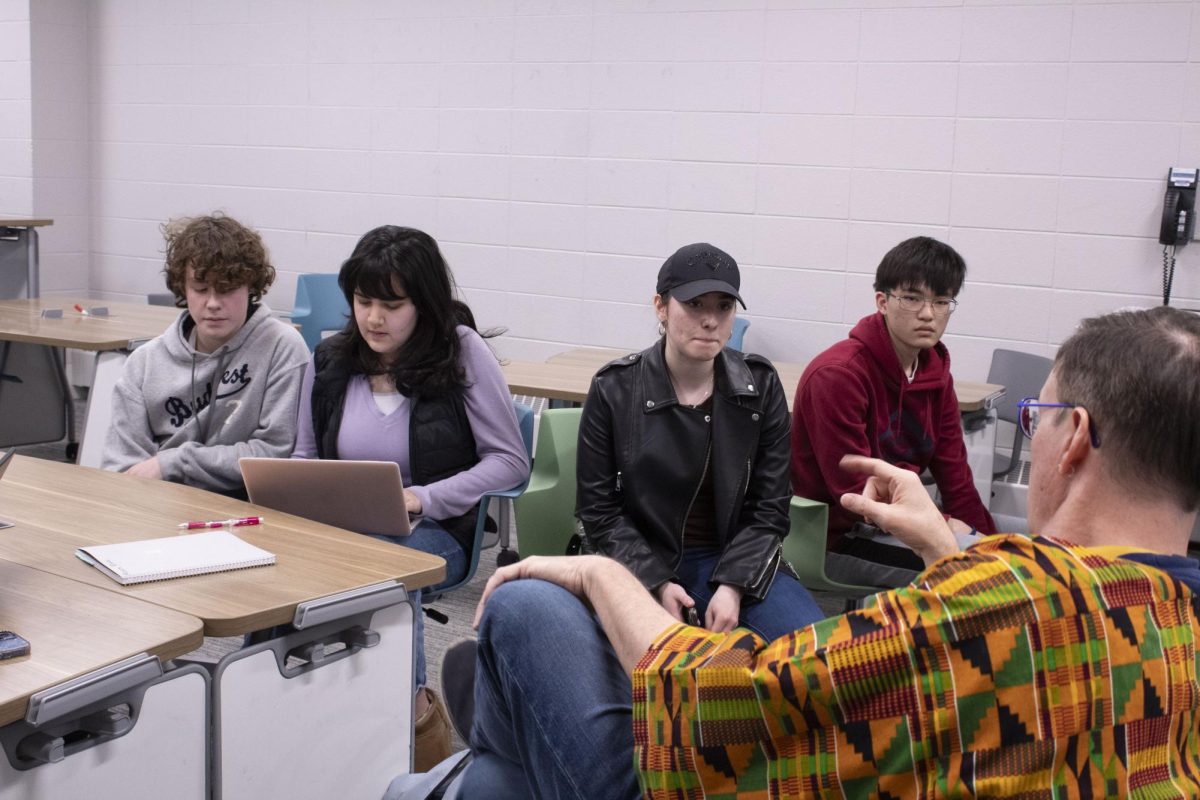It’s the 1920s. A girl is working in a factory owned by the US Radium Corporation (USRC), and her best friend dies. Now, she is sick too. She files a lawsuit and changes the world. She is a Radium Girl.
This year’s fall play, Radium Girls, is set in the 1920s when radium was believed to be a cure for cancer, but ultimately was the cause of many deaths.
Those who worked in the factories were exposed to this poisonous element. The women’s job was to paint dials on glow-in-the-dark clocks. In order to moisten their paint brush’s tip, they put their brushes in their mouth and would unknowningly ingest the radium based liquid in the paint.
This process caused the women to become fatally ill. Before their deaths, five women sued the USRC and after several years, the case was settled. The laws that they changed dealt with workplace safety issues and the statute of limitations.
The cast is made up of 27 students who have devoted their time into creating this year’s fall production.
“The students in the Theater Department are very talented,” Barber explained. “They have embraced the story and the lives of these people. They are doing a wonderful job.”
The lead role of Grace Fryer, played by junior Molly Quinn, worked with other young girls at the factory and after two years of searching, finally found a team willing to take on the lawsuit.
“The character I played, Grace, has pressure on her from all sides: from her family and the company to stop the lawsuit and [also] from her lawyer and case worker to keep going no matter what,” Quinn said.
The defense team, fighting against the women, includes Arthur Roeder, president of USRC. This role is played by sophomore Atticus Hebson.
“His psyche is very complicated in that he wants to make a profit, but he also has strong moral fiber,” Hebson explained. “He, more than anyone, is proof that no one really thinks themselves as bad.”
Hebson claims that when he was assigned one of the lead roles, he was very excited because of the importance of the character he was portraying.
“Getting the chance to perform in such a large role has really changed the way I think about acting,” Hebson said.
Hebson feels that having a large role is both challenging and rewarding.
“A big character means a complex mind, and interacting with different characters is basically playing different people with the same base motivation,” Hebson said. “This role represents a huge amount of challenges as well as opportunities.”
Barber claims that the hardest part of the production was getting the play to come together as a whole.
“Finding all of the news from [that time] period and visuals and then coordinating the slides for the moments in the show has been very difficult [yet] rewarding at the same time,” Barber said.
Despite the difficulties, the cast and crew are working hard to make the production memorable, Hebson says.
“Backstage, everyone is just as dynamic and interesting as they are on stage, always ready to throw a wisecrack at a moment’s notice,” Hebson said.
Quinn feels that Barber has worked hard to make the play the best it can be.
“She is a very good director, and she has done so much research about the characters and the time period,” Quinn said. “She really has put so much time and effort into this play.”
Barber has not repeated a play in her 28 years of directing at South.
“I read a lot of plays every year,” Barber said. “[…] There are many great plays out there so hopefully I can continue finding great works.”
The play can be interpreted in a variety of ways, but Hebson believes the play’s message is standing up for yourself.
“The play really pushes a pro-consumer, pro-worker side, and encourages us to question our superiors when we feel something is wrong,” Hebson said.
According to Quinn, the play is poignant and the fact that it is a true story makes it even more powerful.
“There are so many things the audience could take away from the play,” Quinn said. “I feel one of the main things is to always fight for what you think is right, even if not everyone around you may agree.”







